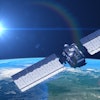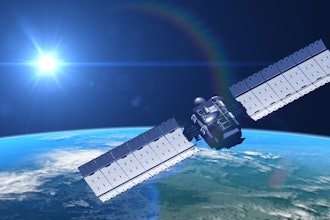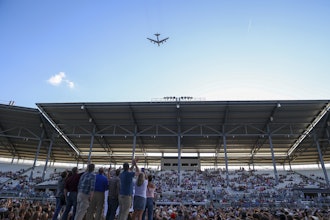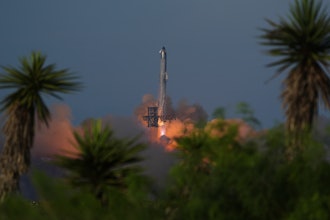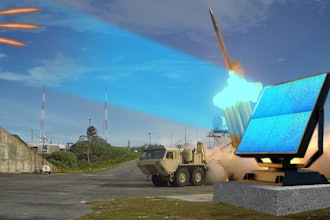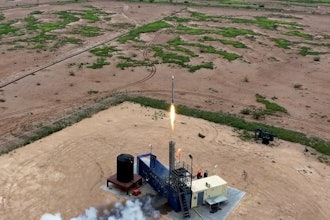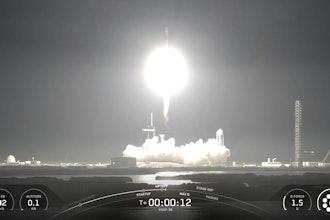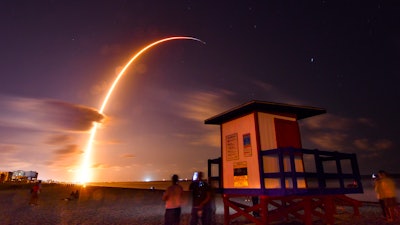
SpaceX has launched 60 little satellites, the first of thousands that founder Elon Musk plans to put in orbit for global internet coverage.
The recycled Falcon rocket blasted off from Cape Canaveral, Florida, late Thursday. The first-stage booster landed on an ocean platform, as the tightly packed cluster of satellites continued upward.
Musk said Friday all 60 flat-panel satellites were deployed and online a few hundred miles (kilometers) above Earth. Each satellite is 500 pounds (227 kilograms).
The orbiting constellation — named Starlink — will grow.
Musk says 12 launches of 60 satellites each will provide high-speed internet coverage throughout the U.S. Twenty-four launches will serve most of the populated world and 30 launches the entire world. That will be 1,800 satellites in total, with more planned after that.

